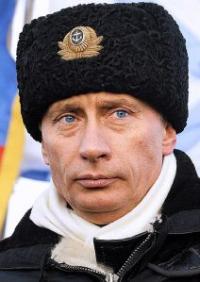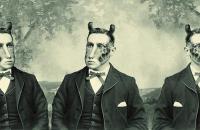Vladimir Putin and the Empire
This question asked in the beginning of Putin’s career has been created during the transmutation of the political language of current Russia from Modern into the Post-Modern. In classical language Putin as a human being is an essence, a reality, a personality in the first place. Then he’s being understood inside the political context along his political actions. This is the approach for the Age of the Enlightenment: there is Vladimir Putin, a politician, a person with certain specifics, with certain roots, and there is also his system of evaluations and thoughts. This was true until the Epoch of the Post-Modern has come...
Inside the Post-Modern a person is an empty space, because all a human being deals with is an interpretation of his/her consciousness. As a result, Vladimir Putin’s image appears not from the knowledge of Vladimir Putin, and not from the analysis of his actions, but from the language context he is in. This is why the question "Who is mister Putin?" inside the Post-Modern system has no answer at all. This is a forever open question.








